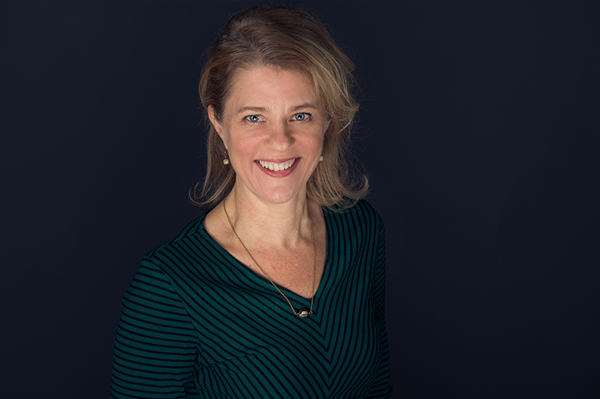Interdisziplinäre Ringvorlesung Transkulturalität: Migrating Music
Am Mittwoch, dem 11. April 2018 findet der nächste Termin der Interdisziplinären Ringvorlesung Transkulturalität_mdw mit dem Thema "Migrating Music" statt.
 Foto: Vortragende Kristin McGee ©Jeroen Dekker
Foto: Vortragende Kristin McGee ©Jeroen Dekker
Wissenschaftlicher Vortrag
Berlin's Electronic Jazz Scene: The Case of Jazzanova
Attias identifies two anxieties commonly expressed upon the widespread adoption of new technologies within established musical cultures: First, that new technologies degrade the fidelity of music recordings and second that they threaten to undermine existing musical techniques. As jazz pundits have consistently advocated for the committed study of canonical recordings to elevate instrumental techniques, the incursion of new technologies during the digital era re-animated such anxieties within the reception of especially electronic jazz.
In Berlin, a city celebrated for its post-industrial exploration of electronic soundscapes within dance cultures, new technologies such as digital sound production and drum sequencing significantly transformed the aesthetics of jazz inspired musical recordings. One of Berlin's most established jazz inspired PLOs (producer-led outfits) is Jazzanova, a collective featuring DJs and producers who are often praised for their exceptional record production aesthetics. This presentation examines the under-researched role performed by DJs and producers in revitalizing jazz culture, especially in the post-reunification city of Berlin.
Drawing from ethnographic research, I posit that such collectives have cultivated a committed transnational jazz community because of their artistic expansion of record production techniques in ways which radically blur the lines between live jazz performance practice and studio engineered jazz production techniques (such as the construction of timbres and beats). Ultimately, I argue that electronic jazz has earned a significant place within European jazz culture in part by re-acquainting youth cultures to jazz and by reinvigorating dance as a participatory act in an era during which jazz was increasingly viewed as static and conservative.
Vortragende: Kristin McGee
Kristin McGee is Associate Professor of Popular Music and Jazz at the University of Groningen. She researches how media impact the representation and performance of gender, sexuality and race in various popular music contexts.
More broadly, she has published on topics ranging from the performance practices of all-girl bands in jazz media to the interactive dance based cultures mediated through online archives such as YouTube. She is the current chair of IASPM Benelux and the recent director of the Groningen Student Big Band.
Künstlerischer Beitrag
Harald Huber mit Studierenden des Instituts für Popularmusik & Trio Sa.Ha.Ra feat. Basma Jabr
- Andreas Schreiber (Austria) violin
- Habib Samandi (Tunesia) percussion & vocals
- Harald Huber (Austria) keyboards
- Basma Jabr (Syria) vocals
- ipop Chor (Leitung: Florian Angerer)
Clash Concerty
Die Idee des "Clash Concerty" entstand im Rahmen des Forschungsprojekts "Performing Diversity" (Harald Huber gem. mit Magdalena Fürnkranz). Dabei wurden u.a. die Aufführungsrituale verschiedener Stilfelder des aktuellen österreichischen Musiklebens untersucht: Klassik, Jazz, World, Dance, Rock, Schlager. Als Polaritäten konnten dabei das "Andachtsritual" und das "Animationsritual" beobachtet werden. Ein "Clash Concerty" ist ein künstlerisches Experiment, das Musikstücke in ungewöhnliche neue Kontexte stellt und jenseits der üblichen Aufführungskonventionen bisher nicht wahrgenommene Bedeutungsschichten der Stücke erschließt.
Trio SA.HA.RA vollzieht den "cultural clash" quer durch das Mittelmeer, das in der Antike als durchlässiger Kulturraum wahrgenommen wurde und heute durch Gegensätze zwischen europäischen und orientalischen Staaten charakterisiert ist. Westliche Kompositionstechniken (z.B. Dodekaphonie) werden mit Elementen arabischer Musiktraditionen gemischt, Themen wie Flucht, Trance und Tanz bearbeitet.
Jedes der am 11. 4. 2017 präsentierten Musikstücke zeigt andere Aspekte von Transkulturalität, von Re-Kontextualisierung:
- Schlager aus Österreich werden in Rock und HipHop transformiert: Hermann Leopoldi steht für das jüdische Wien, "Caprifischer" (Winkler/Siegel), geschrieben 1943, steht für Krieg, Familienschicksale und Mittelmeer einst und jetzt.
- Songs aus Syrien und Tunesien werden in einem Jazz-Kontext präsentiert, dabei wird u.a. auch der derzeit älteste Song der Menschheitsgeschichte, die "Hurritische Hymne Nr. 6", gefunden auf einer Keilschrift-Tafel in Ugarit (heute bei Latakia an der syrischen Mittelmeerküste) präsentiert. Das Lied beschreibt ein Opfer an die Mondgöttin Nikkal um Fruchtbarkeit zu erbitten.
- Der ipop Chor wird einen Song präsentieren, der im Rahmen der Vortragsreihe Transkulturalität entstanden ist ("Sisters and Brothers") und alle Mitwirkenden sind abschließend eingeladen, bei einer World Music Session ausgehend von einer Nummer von Kristin McGhee mit zu jammen.
Kommentar und Moderation: Rosa Reitsamer (mdw)
Interdisziplinäre Ringvorlesung Transkulturalität:
Migrating Music
Mittwoch, 11. April 2018, 17.00 – 20.00 Uhr
mdw – Universität für Musik und darstellende Kunst Wien
Fanny Hensel-Saal
Anton-von-Webern-Platz 1
1030 Wien
